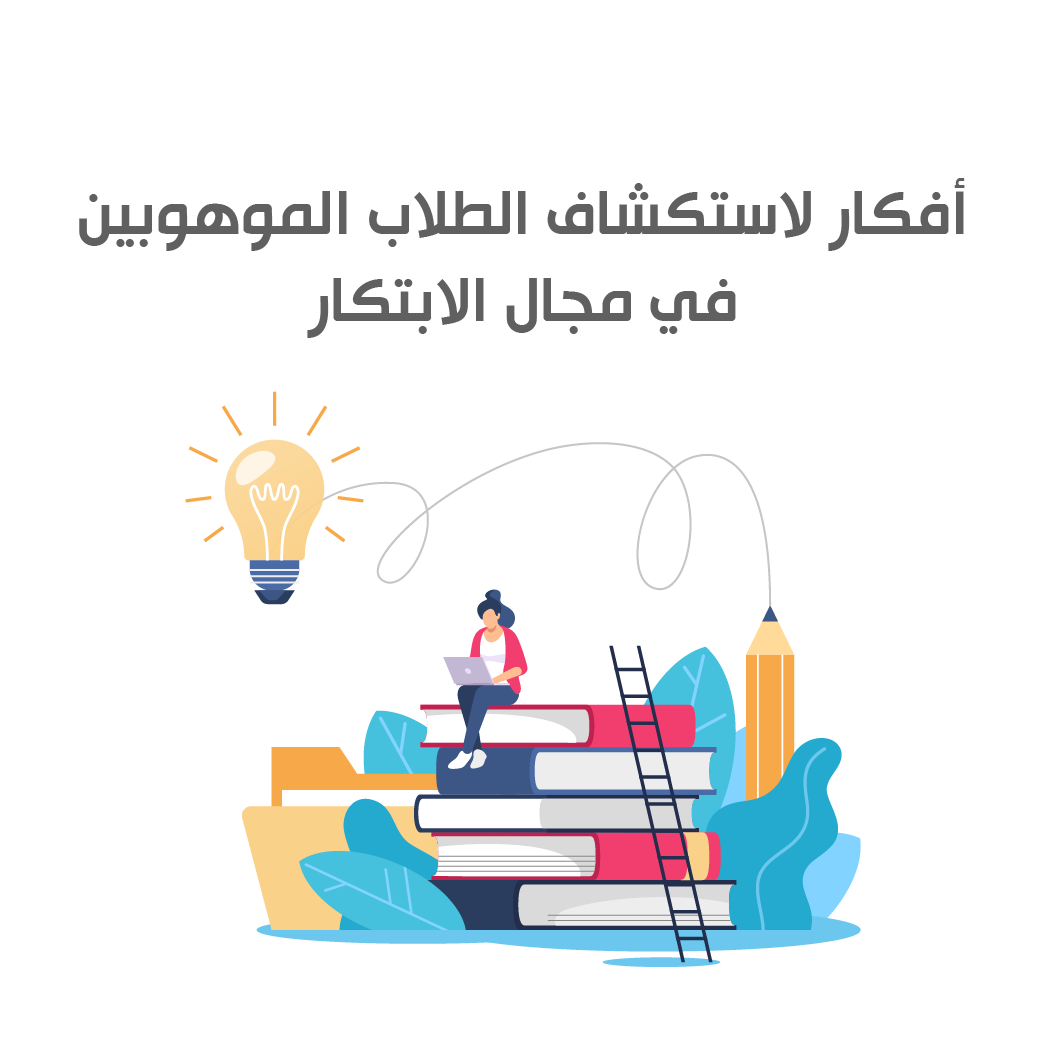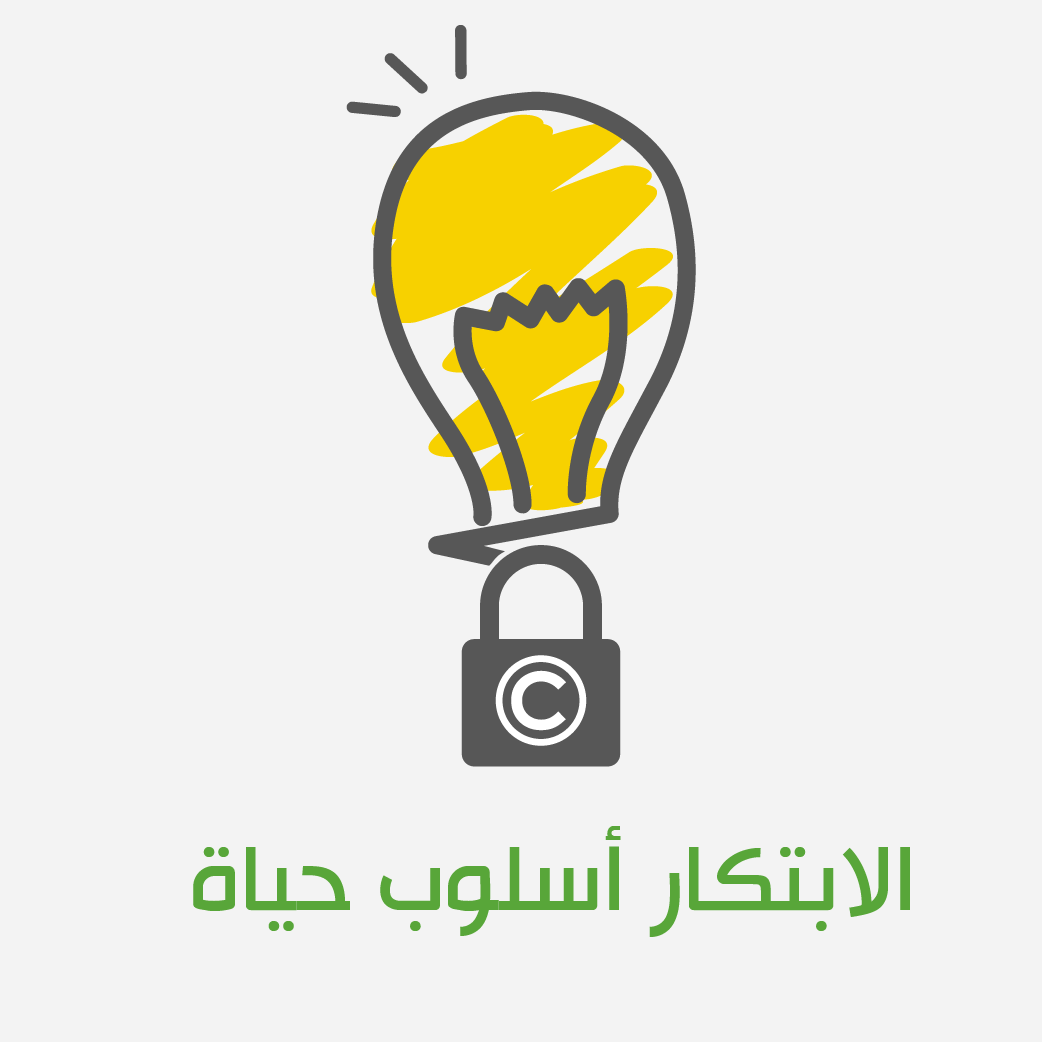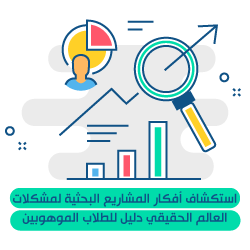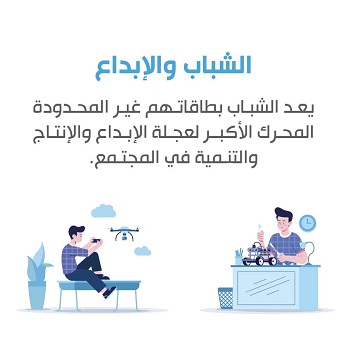Ideas for exploring talented students in the field of innovation

Dr. Mark W. Oleksak
Innovation
24
“Don't hide your talents; they are designed to be exploited. What's the point of a sundial among shadows?”
Benjamin Franklin
Mawhiba places a great emphasis on identifying and selecting gifted and talented students to participate in its programs. The purpose is to nurture these talents, both in exploring different areas of learning, especially in the field of science, technology, engineering and mathematics, and also in applying what they have learned to real-world applications through project-based learning. These are admirable endeavors that should be continued, but there is also a need to make a “radical” effort with these students; that is, to provide a basic learning environment that will engage and motivate them.
Gifted students need to be challenged to get their minds going and start asking questions, which in turn leads to creativity and innovation. This article will discuss some recommendations on what is available to these students for creative purposes outside the classroom, in these days of COVID-19 restrictions.
The following list is designed to provide some ideas for students and parents on how to engage in innovation endeavors while in a virtual learning environment. The purpose is to continue to enhance their creative thinking skills and keep them asking questions that can lead to further research and, potentially, development. The practices and skills learned can certainly help them continue on the path to innovation and real-world applications.
Ideas to explore:
Practical innovation activities at home
Parents and students can follow Mawhiba’s articles and tweets, which provide some great inquiry-based activities that can lead to additional outreach. This allows students to research background information, follow a procedure, and test a solution at home using everyday items and basic scientific principles. It really focuses on using the scientific process skills of observation, prediction, inference, measurement, description, and communication. It will encourage students to brainstorm and try to find solutions to an extracurricular problem. This can lead to fun experiments and even family competitions.
workshops
Workshop activities use a fun, collaborative environment with a focus on student-centered, project-based learning. Many workshops have been conducted in the past, such as in-person events or open spaces, but with the current COVID-19 pandemic, they have shifted to delivering content through digital technologies, coding, computational learning, prototyping and more. Students can use this as a springboard for future learning on these hot topics. Searching for workshops regionally and globally is a positive step for parents and students to take.
“If you can imagine your dream, then you can achieve it; always remember that it all started with a dream and a mouse.”
- Walt Disney
Innovation Webinars
As the pandemic continues and schooling remains virtual, the challenge remains of how to continue to enrich and develop the education of gifted children. Each family must choose the educational programs that are best for them. Gifted webinars can help review options and provide insights into how to keep creativity flowing. It is important to ensure that children’s academic, social, emotional, and physical needs are considered and that virtual solutions are implemented. Many webinars can be found locally, regionally, and globally that address key issues and can be viewed together as a family. It is important to stay fully informed about supplemental education perspectives and opportunities during these times.
Use of games
Gamification has become a popular and fruitful way to teach gifted students. In essence, it uses an approach to add game elements, such as storytelling, competition, collaboration, and rewards, to the existing learning environment. There are many great educational games available online. The goal is to increase student engagement by using a series of goals, rules, journeys, rewards, and feedback on progress. Even with these current offerings, there is great potential for further development in many everyday curriculum areas or disciplines. Students can try out some of the programs available or come up with some new ideas on how to make this virtual learning environment more fun. Teachers can also apply the basic principles of gaming to their own teaching and allow students to participate.
“There is no other arrangement that is more productive for gifted children than acceleration.”
-James A. Kulick
Innovation Competitions
In the midst of virtual learning, most local and international competitions have moved their operations online. This reduces much of the groundwork for participation and assessment. These competitions are a great way for talented students to present a problem or question, use existing tools to develop a solution, and then test it. This fosters basic research, critical thinking skills, methodology, teamwork, and communication. Examples include the Speed Challenge for Students, Microsoft Imagine Cup, First Robotics Competition, VEX Robotics, Intel International Science and Engineering Fair, Genius Olympiad, Mind Odyssey, International Bridges Competition, Biotech Genius Competition, ETX, and Mileset. During these months of COVID-19 restrictions and even in the summer, students should look for opportunities to take advantage of these events. They are also a great addition to a college resume, as admissions offices want to see STEM activities outside the classroom that have been part of a student’s development.
Ideas for Innovation (Ideathon)
Ideathons are a popular, emerging event for gifted students. These are short, intensive workshops (one or two days) that focus on a current, significant challenge. Participants work in teams and use brainstorming, design iterations, and creative processes to come up with a feasible solution. There may be parameters around what tools are allowed to be used to achieve the outcome, and participating designers may participate to illustrate the problems being addressed. These are great experiences for students, not only for the duration of the event, but also afterward, as many choose to continue developing their project. They can be incorporated into events such as science fairs or even become a startup for potential commercialization or implementation.
“The natural path to talent...is to deepen character, to strengthen one's value system, to create greater and greater challenges for oneself, and to develop broader ways of expressing one's compassion.”
- Dr. Linda K. Silverman
Co-designed guidelines and projects
Talented students have always had a great experience working in a lab and experiencing real-world research or innovation projects. During these stressful times of the COVID-19 pandemic, most labs are off limits, but many types of specializations and research can be offered online with mentors. This includes areas such as machine learning, deep learning, simulation, cybersecurity, robotics, engineering, applications, and surveys. Students should reach out to their local universities and research centers to ask department heads if there are any mentoring opportunities available. Additionally, if students have identified a common problem in their local community that affects a specific group of people, it is a good idea to ask them to be part of an innovation project. The student can conduct a needs assessment and identify requirements, then brainstorm with others about possible solutions that will help these people overcome their problem. This is a great way to build a project that can be presented at an event or even marketed.
“It is true that geniuses are a small minority, and they are likely to be so; but in order to obtain them, it is necessary to nurture the soil in which they grow.”
- John Stuart Mill
Did you benefit from the information provided on this page?
visitors liked this page


